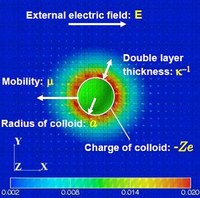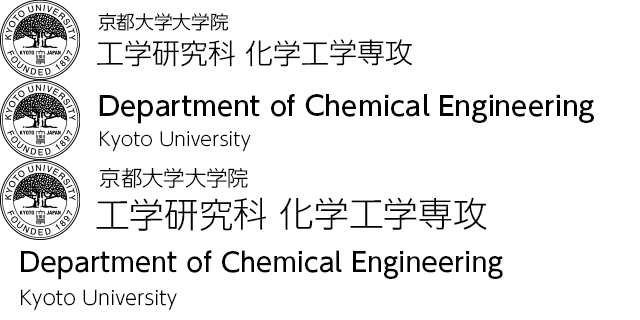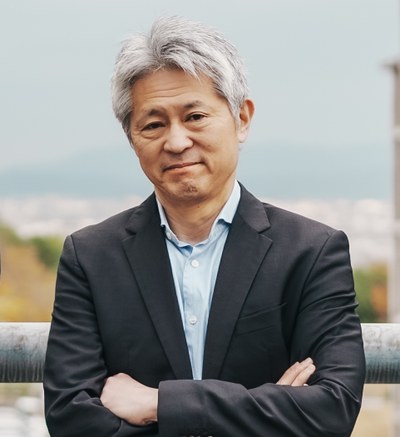Transport Phenomena
Academic Staff
Ryoichi YAMAMOTO
Professor (Graduate School of Engineering)
Research Topics
My main concern is to understand the nature of unique properties of soft matters and to develop useful computational methods applicable for this purpose. I am currently interested in the following topics.
- Transport Phenomena of Soft Matters/Complex Fluids
- Computer Simulations of Materials
- Developments of New Simulation Methods
Contacts
Room 118, Bldg. A4, Katsura Campus
TEL: +81-75-383-2661
FAX: +81-75-383-2651
E-mail: ryoichi![]() cheme.kyoto-u.ac.jp
cheme.kyoto-u.ac.jp
Takashi TANIGUCHI
 Associate Professor (Graduate School of Engineering)
Associate Professor (Graduate School of Engineering)
Research Topics
Contacts
Room 117, Bldg. A4, Katsura Campus
TEL: +81-75-383-2681
FAX: +81-75-383-2651
E-mail: taniguch![]() cheme.kyoto-u.ac.jp
cheme.kyoto-u.ac.jp
John MOLINA
 Assistant Professor (Graduate School of Engineering)
Assistant Professor (Graduate School of Engineering)
Research Topics
Active Matter
Contacts
Room 116, Bldg. A4, Katsura Campus
TEL: +81-75-383-2631
FAX: +81-75-383-2651
E-mail: john![]() cheme.kyoto-u.ac.jp
cheme.kyoto-u.ac.jp
Hiroyuki MARUYAMA
 Assistant Professor (Graduate School of Engineering)
Assistant Professor (Graduate School of Engineering)
Research Topics
- Measurements of the contact potential difference between particles and a wall, and analysis of the mechanism of the charge transfer on the particle electrification and the relaxation.
- Analysis of electrification based on the quantum chemistry.
- Analysis and simulation of impact electrification of particles.
- Development of tribo-charging materials.
- Measurements and analysis of the phenomena in nano scale on a particle using a scanning probe microscope.
Contacts
Room 121, Bldg. A2, Katsura Campus
TEL: +81-75-383-2679
E-mail: Hiroyuki.Maruyama![]() cheme.kyoto-u.ac.jp
cheme.kyoto-u.ac.jp
Introduction to Research
We have been working on various transport phenomena of complex fluids and soft matters (complex fluids, polymers, colloids, etc) by mainly using methods of computer simulations. Microscopic simulations, known as molecular dynamics (MD) and Monte Carlo (MC) simulations, have widely been used for material’s simulations in general. Such microscopic simulations, however, tend to require enormous computation time for performing meaningful simulations of complex fluids and soft matters because meso- or macro-scale phenomena are of particular interest often for them. Alternative strategies based on new ideas are definitely needed to achieve meaningful simulations for those complex systems. We thus aim to develop unique and new methodologies useful in chemical engineering by using recent progress of several theoretical approaches, while empirical methods have mainly been used to analyze transport phenomena in chemical engineering so far.
1. Direct Numerical Simulations (DNS) for colloidal dispersions
We have developed a unique mesoscale method for simulating colloidal dispersions. Our program has been released as a colloid simulator KAPSEL, which enables us to perform successful DNS simulations for neutral and charged colloidal dispersions. We have applied this method to analyze electrophoresis of dense charged colloidal dispersions.


Fig. 1. Direct numerical simulation of electrophoresis of charged colloids. Arrow: velocity field, Color: density of counter ion.
2. Multi-scale simulations for soft matters
Theoretical studies of complex fluids and soft matters are important both from scientific and engineering points of view. We aim to achieve efficient computer simulations of soft matters by developing multi-scale methods which enable us to perform consistent simulations of microscopic (atoms, molecules, etc), mesoscopic (density fields, interfaces, etc), and macroscopic (shapes of materials, production processes, etc) variables to understand several unsolved problems related to transport phenomena of those systems.

Fig. 2. Schematic picture of multi-scale simulation for charged colloidal dispersions.

